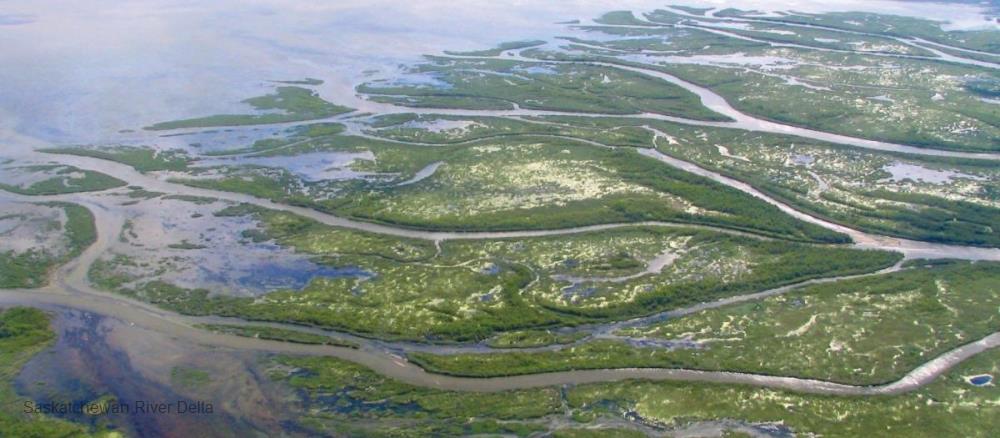
Related items loading ...
Section 1: Publication
Publication Type
Conference Presentation
Authorship
Gibson Colin, Martin-Hill Dawn, de Lannoy Charles-François
Title
Striving Towards Reconciliation through the Co-Creation of Water Research
Year
2022
Publication Outlet
AOSM2022
DOI
ISBN
ISSN
Citation
Colin Gibson, Dawn Martin-Hill, Charles-François de Lannoy (2022). Striving Towards Reconciliation through the Co-Creation of Water Research. Proceedings of the GWF Annual Open Science Meeting, May 16-18, 2022.
Abstract
Water issues in Indigenous communities of ‘Canada’ are rooted in the settler-nation’s history of colonialism. Conventional approaches to water management have failed to provide Indigenous communities with water security and limit Indigenous self-determination. Innovative and community-led approaches to water monitoring and management can help promote Indigenous water governance. The GWF-funded Co-Creation of Indigenous Water Quality Tools (CCIWQT) research project is a Haudenosaunee-led approach to improving water security in Six Nations of the Grand River (Six Nations). In alignment with the needs and priorities of Six Nations and underpinned by Haudenosaunee values, the goal of CCIWQT is to develop a broad range of water monitoring and management that can assist in enhancing the community’s control over their water management. These tools (e.g., water sensors, web-based data platforms, virtual reality experiences) are being developed through a novel interpretation of co-creation and are designed to facilitate sustainability in water management by Six Nations. For CCIWQT, co-creation works to harmonize Indigenous and Western approaches to science by recognizing and respecting the need for knowledge coexistence without assimilation. Following Indigenous leadership in interdisciplinary water research requires non-Indigenous support and recognition of the importance of Indigenous Knowledge in the sciences. Additionally, under the direction of Indigenous leadership, non-Indigenous researchers can be involved in a feasible and practical reconciliation-based research process that avoids subsuming Indigenous and Local Knowledge into Western ontologies.
We have reflected on various forms of reconciliation that have occurred in the research under the CCIWQT project. This research has been guided by Indigenous researchers and Six Nations community members in conjunction with non-Indigenous natural scientists and engineers. In our reflective review, we have featured specific CCIWQT research activities to demonstrate how reconciliation ‘Calls to Action’ (CTAs) were applied in practice. Specifically, the CTAs reflected upon are from Wong et al. (2020), who outline 10 CTAs for natural scientists working in Canada. Lessons learned by non-Indigenous researchers are best summarized by CTA #10, “…to develop a new vision for conducting natural science: fundamentally mainstreaming reconciliation in all aspects of the scientific endeavor, from formulation to completion” and contributes to harmonizing two ways of knowing, contributing to innovation and advancements in epidemiology. Following an introduction of case studies relating to specific CTAs, we discuss the challenges faced by the non-indigenous scientists and engineers and provide recommendations for a range of stakeholders involved in Indigenous-led research (academics, administrators, funding institutions, etc.) based on the research team’s experience.
Plain Language Summary
Section 2: Additional Information
Program Affiliations
Project Affiliations
Submitters
|
Colin Gibson | Submitter/Presenter | gibsoc13@mcmaster.ca | McMaster University |
Publication Stage
N/A
Theme
Human Dimensions - Impact and Management
Presentation Format
10-minute oral presentation
Additional Information
AOSM2022 Co-Creation of Indigenous Water Quality Tools First Author: Colin Gibson, Project Officer, McMaster University Additional Authors: Dawn Martin-Hill, Associate Professor, McMaster University; Charles-François de Lannoy, Assistant Professor, McMaster University


 GWFNet
GWFNet Master
Master Data
Data Research
Research Map
Map
 Advanced
Advanced Tools
Tools
 . . .
. . .
 Metadata Editor
Metadata Editor
 Record List
Record List
 Alias List Editor
Alias List Editor
 Legacy sites
Legacy sites